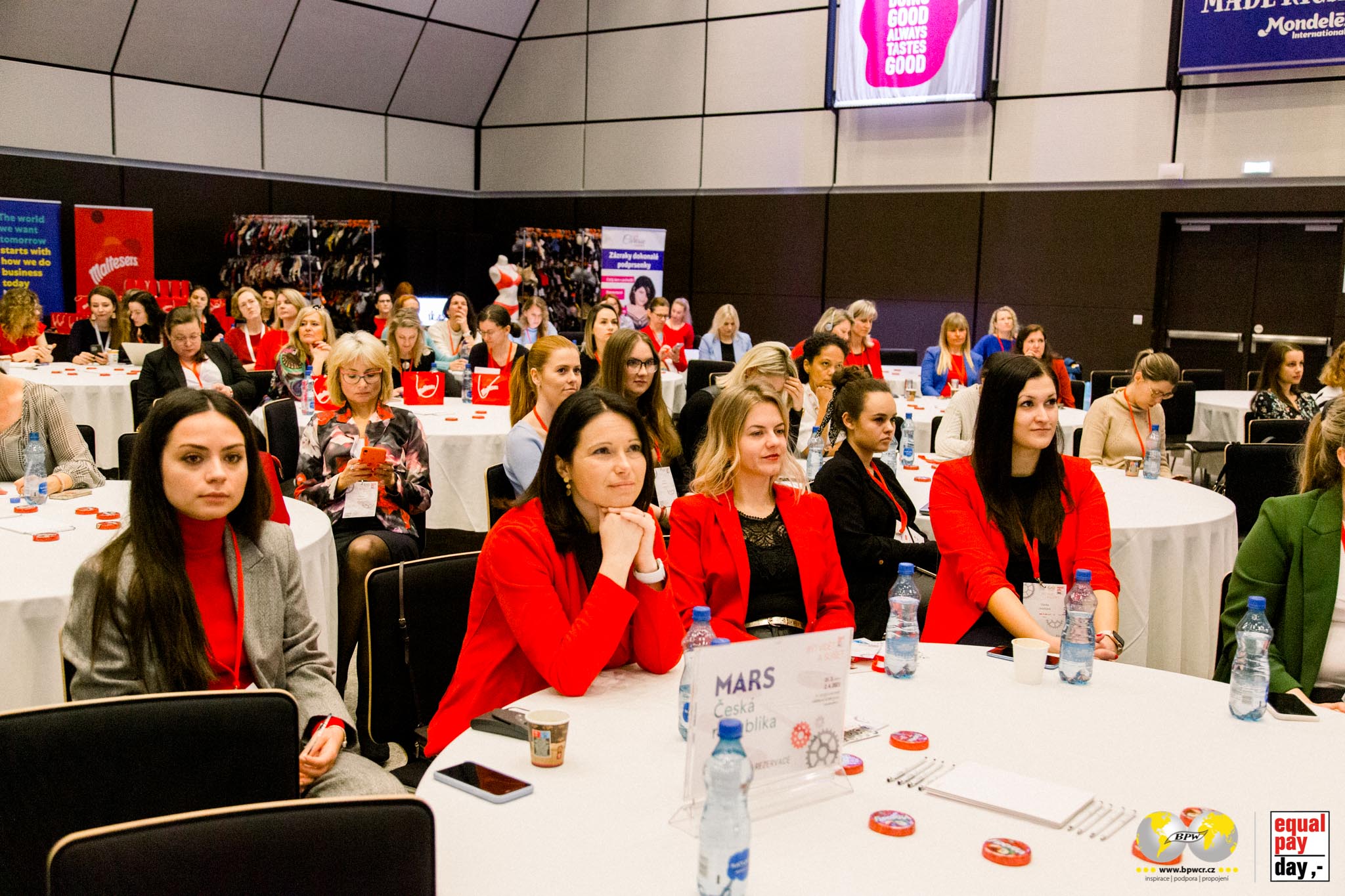
According to Eurostat, women in the Czech Republic earn on average 17.9% less than men, which means that they work 65 days longer on average to reach the same remuneration as men. This is the third worst result among EU countries. The goal of the Equal Pay Day conference is to draw attention to this issue, open public discussion, and help find solutions to make pay fair. At the same time, it also significantly contributes to strengthening the position of women in society and on the labor market by presenting female role models, sharing experiences, education, and mentoring.
“The issue of equal opportunities is a societal issue, and for it to be successful, men must be involved in its solution. The difference in wages between men and women is unfair not only to women but above all to entire families,” says Lenka Šťastná, founder and president of the non-profit organization Business & Professional Women CR, which organizes EPD. “The Czech Republic is moving forward very slowly. We keep coming up against the prejudices we are brought up with. There are preconceived notions of what is a typically female and typically male profession.”
According to Frederik Jorgensen, the ambassador of Sweden, which traditionally ranks first in the Gender pay gap index, “the Czech Republic should arm itself with patience, as quick successes in this area cannot be expected.” In Sweden, the representation of women in influential positions is exceptionally high in private companies even in politics, yet it is “only 36% of women on the boards of large companies and 12.1% of women in the position of general directors. “There’s no reason why the number shouldn’t be higher,” he added during the ambassadors’ panel discussion, where he spoke alongside the ambassadors of South Africa, Malaysia, Denmark and a representative of the Central European Initiative (CEI).
The opportunity for change is still here
That is why this year’s conference was subtitled Opportunity. The opportunity that equality means for companies, households, women themselves and for the Czech economy. As it turns out, there are already a number of companies whose example shows the way. Representatives of such companies as Philip Morris, Danone, Mars, GasNet, Lego, VML, ČEPs, Skupina Nova or Pestle & Mortar shared their inspiring strategies.
“At Philip Morris, we purposefully focus on a sufficiently high representation of women in management. In practice, we often encounter a lack of women interested in growing into these positions,” says Andrea Gontkovičová, Chairman of the Board and CEO of Philip Morris for the Czech Republic, Slovakia and HU, which was the general partner of the conference. “For us, it is important that women’s interest in career growth is authentic, so that women do not seek to obtain an influential position just because they are forced into this situation. They can then draw strength from their own decision in moments when they encounter a barrier in their career or find themselves at some of the crossroads in life.”
The expert partner of the conference this year was the Equal Remuneration project of the Ministry of Labor and Social Affairs. In her presentation, Lenka Simerská, the main manager of the project, dispelled disinformation spreading around the legislation requiring transparency in remuneration. “Transparency means the right to information: how much is earned for a given position in the company where you work, plus the possibility to ask why I am where I am. And this information should already be heard during the interview,” said Lenka Simerská. And finally, she advised women: “Act as if the legislation already applies, ask about money. Let’s turn it into an opportunity!”
Record attendance
This year’s jubilee year saw record participation, including a record number of foreign performers from 15 countries around the world, as well as the number of mentees, which exceeded two thousand.
The international reputation of the Equal Pay Day conference is underlined by the support of leading international institutions such as the Organization for Economic Co-operation and Development (OECD) and CEI, which designated it as a flagship event this year. According to Lenka Šťastná, their cooperation is not only a recognition of the efforts made so far, but also the key to expanding the reach and influence of the conference. It is precisely thanks to the support of CEI that this year’s edition can rightfully bear the designation of international.
In a speech for EPD, Ulrik Vestergaard Knudsen, OECD Deputy Secretary General, emphasized that the promotion of gender equality is a strategic policy of the OECD and listed three key measures that are necessary to change the current situation. “First, it is necessary to continue to support the more equal use of parental leave by fathers and mothers. Second, it is very important to ensure continuous and affordable formal childcare and out-of-school services for all young children. And third, policymakers can reduce the fiscal disincentive to work, ie. to ensure that the tax and benefit system does not favor single or main earner families,” he said.
The European Commission includes the EPD campaign and conference among the important measures of the EU and its member states to support equal pay. This topic is gaining importance together with the newly created obligation to implement ESG sustainable business principles and related non-financial reporting (CSRD). Among the metrics that must be monitored and reported under the “S” pillar are, among others, the gender pay gap, the level of representation of women in top management and equal opportunities, diversity and inclusion. And that’s exactly what the Equal Pay Day conference is dedicated to.
The next edition of the conference will take place on 25-26 March 2025 again at the Clarion Congress Hotel in Prague.
Equal Pay Day 2024 in numbers:
16 nationalities
36 speakers at the conference
812 participants
78 female mentors
2,180 mentees

